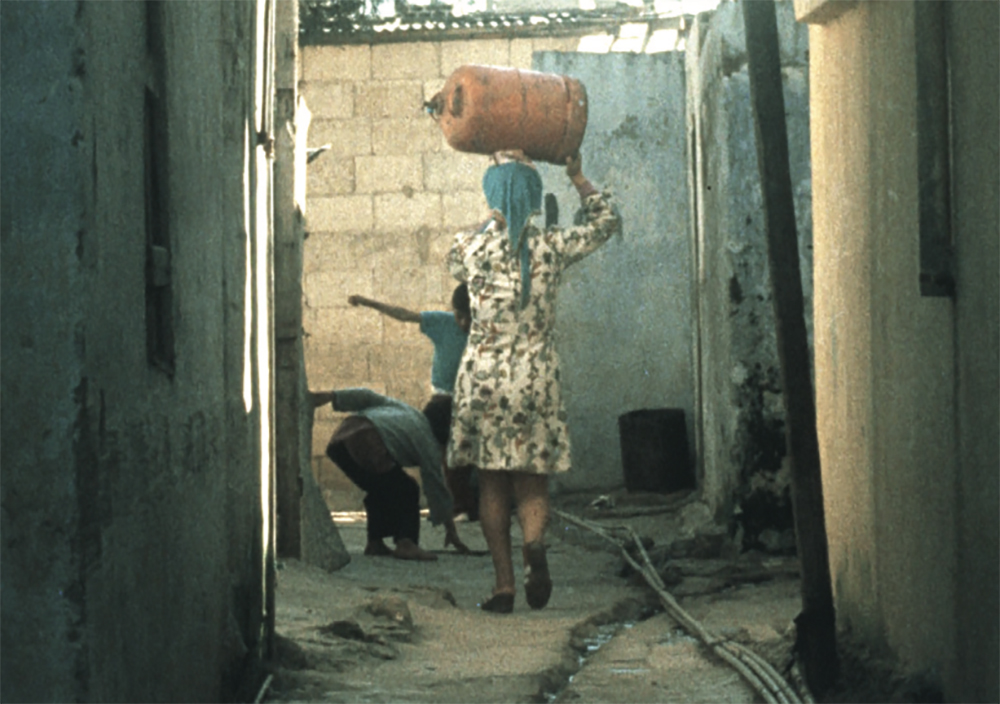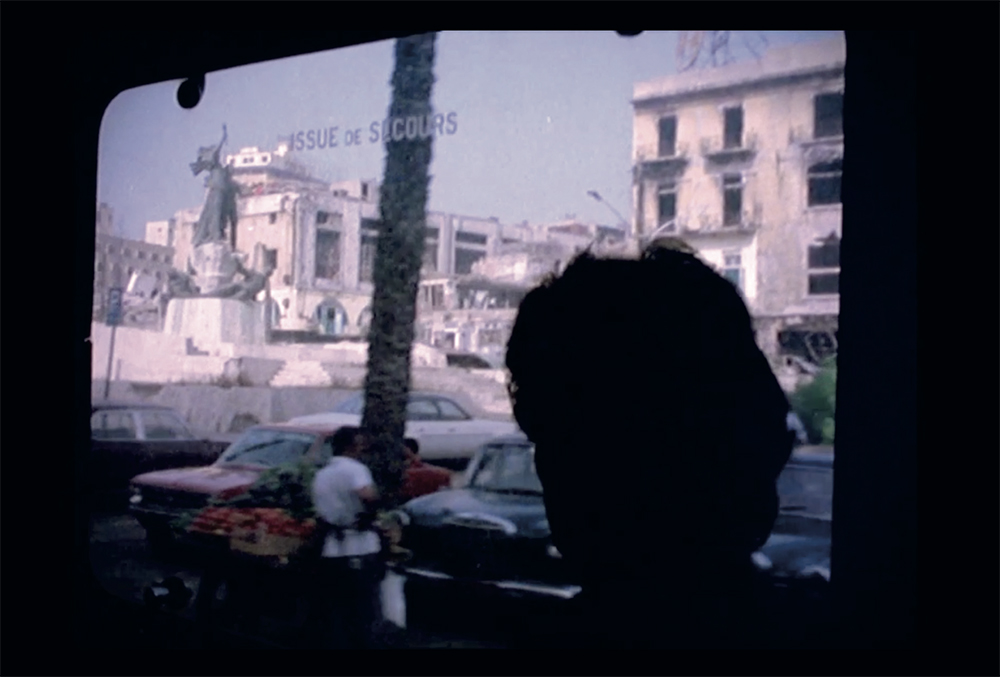3 - Jocelyne Saab - Palestinian Women / Egypt, City of the Dead / Letter from Beirut
“Once you hold a camera, you assert yourself through your profession. You react with your sensitivity as a woman — I don’t deny it. On the contrary ... Maybe, in order to define it, although I can’t say for sure, maybe it’s about a gaze that lingers less on the surface of things, like that of cannons or armies. I always preferred to know the sensitivity of people in their details, the children, the women, the men, the daily life of human beings ... In this field, people are so astonished to see a woman arriving that they make space for her and they respect her.”
Jocelyne Saab (1948-2019) werd geboren en groeide op in Beiroet. Na haar studies economie aan de Sorbonne in Parijs, werkte Saab mee aan een muziekprogramma voor de nationale Libanese radio en werd vervolgens door dichter en kunstenaar Etel Adnan gevraagd aan de slag te gaan als journalist. In tegenstelling tot de meeste oorlogsverslaggevers die naar conflictgebieden moeten afzakken om hun beroep uit te oefenen, kwam de oorlog in 1975 naar Saabs geboorteland. Datzelfde jaar betekende de start van haar carrière als filmmaker met Le Liban dans la tourmente, een relaas van de verschillende drijfveren en belangen achter het beginnende conflict. De oorlog zou nog 15 jaar aanslepen en Saab legde de verschrikkingen ervan vast in haar opmerkelijke “Beiroet Trilogie”, bestaande uit Beyrouth jamais plus (1976), Lettre de Beyrouth (1978) en Beyrouth, ma ville (1982) — kronieken die ongeëvenaard zijn in zowel hun ethische integriteit als emotionele impact. De oprechtheid en empathie die Saab aan de dag legde bij de oorlog in haar thuisland kenmerkt ook haar andere documentaires. Of het nu ging om het filmen van de strijd van het Polisariofront in de woestijn van de Westelijke Sahara, de gevolgen van president Sadats Infitah-beleid in Egypte, of de nasleep van de Iraanse revolutie van 1979, met haar veelzijdige blik schiep ze een beeld van het Midden-Oosten dat ver weg bleef van simpele reducties.
“Ik denk dat wat mijn parcours typeert, is dat ik altijd coherent ben willen blijven. Ik was steeds bereid te vechten voor waar ik in geloof, het tonen en analyseren van dit Midden-Oosten dat me zo passioneert. Toch had ik er op een dag genoeg van, of liever: mijn ogen waren het moe. Ik kon niets meer zien — te veel dood en ellende. Toen ging ik verder met fictie.” Haar overstap naar fictie kwam er in 1981 als second unit-regisseur voor Die Fälschung van Volker Schlöndorff. Kort daarna maakte ze haar fictiedebuut, Gazl Al-Banat (1985), dat zich afspeelt in hetzelfde door oorlog verscheurde Beiroet dat ze tien jaar eerder had gedocumenteerd. Nadat de oorlog het hele land dooreen had geschud, probeerde Saab met Il était une fois Beyrouth in 1994 — aan de vooravond van het eeuwfeest van de cinema — het filmische geheugen van de Libanese hoofdstad te redden. In 2005 werd ze gecensureerd en met de dood bedreigd voor het maken van Dunia, een film gemaakt in Caïro over verlangen, genot en vrouwelijke seksualiteit binnen de context van de Islam. Tot haar dood in januari 2019 bleef Saab toegewijd aan wat ze zelf zag als haar “twee onwankelbare obsessies: vrijheid en herinnering”.
New digital scans produced as part of the research project “Imperfect Archives” (KASK / School of Arts)
Copies courtesy of Association des Amis de Jocelyne Saab and CNC (Centre national du cinéma et de l’image animée)


